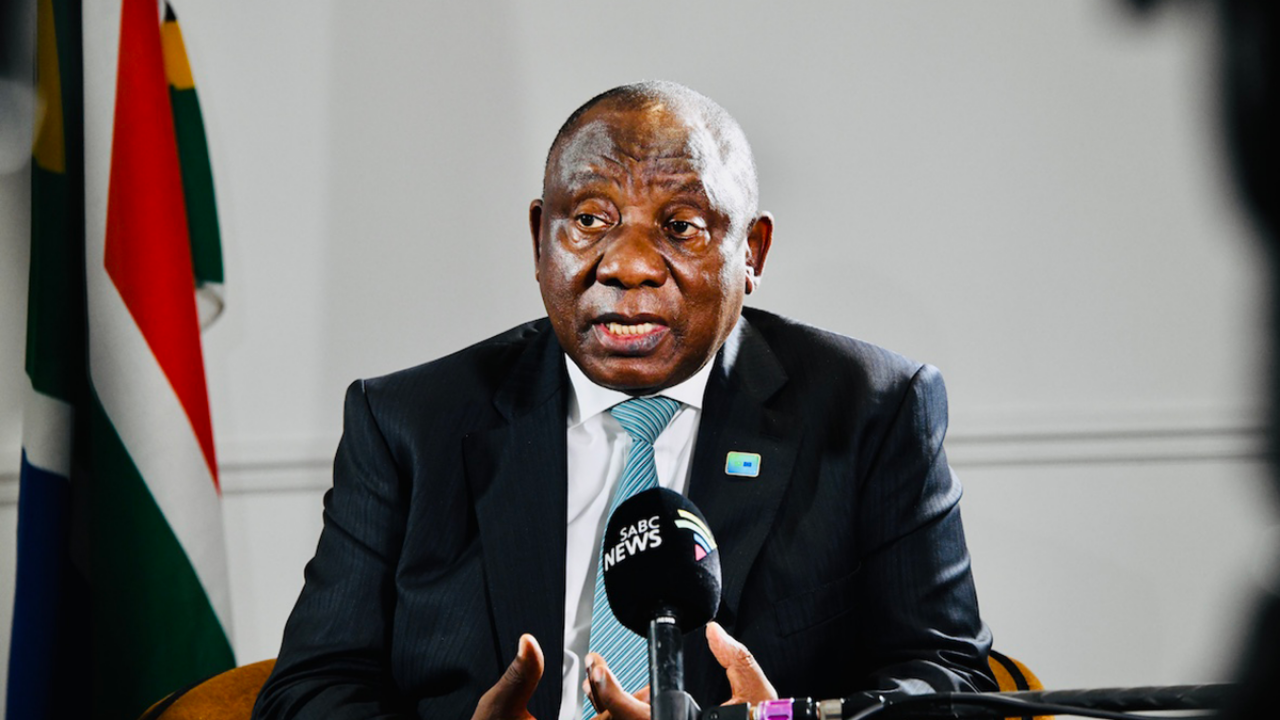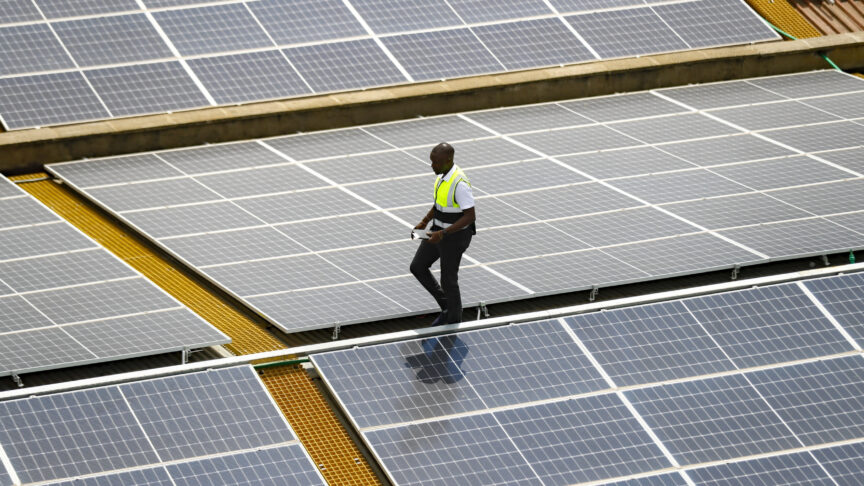Promises, promises: The future of the Europe-Africa partnership
The recent summit between the European Union and the African Union raised hopes of genuine cooperation between the sides. A key test of the partnership will be in whether the EU lives up to its promises
As the dust settled on the February 2022 summit between the European Union and the African Union in Brussels, South African President Cyril Ramaphosa gave a remarkably candid interview to SABC News. When asked about the EU’s flagship announcement of €150 billion investment in Africa, he said: “We have lived through various promises, from the COP [UN conference on climate change] where $100 billion was promised per year … we look at this with a degree of … ‘will this really be done?’ because we remember what was not done in the past”.
On the same day, the G20 finance ministers acknowledged that they had failed to meet a pledge to deliver $100 billion in International Monetary Fund (IMF) special drawing rights to support vulnerable countries during the pandemic. This target was first championed in May 2021 by French President Emmanuel Macron, co-chair of the EU-AU summit. Therefore, it is understandable that Ramaphosa appears to be somewhat sceptical about European commitments.
This year’s summit builds on a 22-year history stretching back to the first EU-Africa summit in Cairo. That event resulted in the Cotonou Agreement, which laid out plans for the gradual integration of African countries into the global economy. The accord reflected high levels of ambition on three main pillars of cooperation: development aid and loans; trade and investment; and democracy, peace, security, and migration.
But, in a recent commentary for the Center for Global Development, W Gyude Moore and Ovigwe Eguegu deftly show how the data tell a slightly more nuanced story. The EU is Africa’s largest trading partner. But, in 2021, manufactured products accounted for 68 per cent of EU goods exports to Africa, while primary goods accounted for 65 per cent of Africa’s goods exports to the EU. Foreign direct investment from Europe is also largely focused on these sectors – and has barely kept up with African economic growth, which has quadrupled since the Cairo declaration. In the last decade, most African exports to the EU have been raw materials and energy rather than products that would boost the job-creating industries Africa needs. Furthermore, the EU’s share of total aid to sub-Saharan Africa has declined since 2008.
In the AU’s blueprint for its development, Agenda 2063, industrialisation is the priority. If successfully implemented, its flagship African Continental Free Trade Agreement initiative could lead to the kind of prosperity created by the EU’s single market.
Such prosperity is more than a political aspiration. Rather, it is an imperative. By 2070, young Africans will outnumber young EU citizens by 12 to 1. With 22 million young people entering the African job market every year, the potential for economic transformation is huge. But there will also be a significant threat of instability if these young people are unable to access opportunities. Such a situation could lead to what some European politicians fear the most: a major flow of ‘unmanaged migration’ from Africa to Europe.
This is where the Brussels summit could signal a turning point. Perhaps more than ever, there is a mutual interest in cooperation. Insiders suggest that this realisation was palpable at the summit negotiations. One seasoned diplomat told me that there had been “a huge change [of mindset] from previous EU-AU summits” and key performance indicators “should no longer be measured in financial commitments but in the agreement to work together towards common goals”.
The EU and AU could bring a joint position to the World Trade Organisation Board, forming a powerful negotiating bloc
This change involved frank discussions about the EU’s decision to block South Africa’s and India’s proposal for an intellectual property waiver on covid-19 vaccines and therapeutics. African leaders negotiated significant concessions from the EU, including new commitments to finance vaccine manufacturing and engage in technology transfers, and an agreement to find a solution on intellectual property by spring 2022. These discussions also featured the remarkable yet almost unnoticed statement from European Commission President Ursula von der Leyen that “compulsory licensing with a deep cut in profits” should be on the table.
If this package leads to true technology transfers, it could accelerate African production of vaccines and therapeutics. It could also contribute to the AU’s ambition to manufacture 60 per cent of all the vaccines it consumes by 2040.
It is even conceivable that the EU and the AU could bring a joint position to the World Trade Organisation Board, forming a powerful negotiating bloc and signalling their potential for diplomatic cooperation on other issues. That is, the commitment to the development of the African pharmaceutical industry could be a prelude to other forms of industrial strategy, principally that to support the clean energy transition.
The six hundred million people in Africa who have no access to electricity need solutions fast. Finding these solutions could mean ‘leapfrogging’ to cleaner technologies. But the continent could also become an engine for the global green energy transition: it has significant natural resources in the form of rare earth metals necessary for battery technology, as well as a climate suited to solar energy production.
For this to be successful, it will be necessary to secure sustainable sources of funding. At COP26, the $8.5 billion Just Energy Transition Partnership was announced to help South Africa transition away from coal. This is a significant undertaking that could act as a model for other forms of financing. The AU’s Climate Change and Resilient Development Strategy provides a blueprint for a transition plan that the EU’s Global Gateway initiative could help finance. But that initiative raises many questions about who will lend to whom, what will the terms be, and what purpose the transactions will serve.
With an increasingly bullish and cooperative AU, another possible source of tension lies in the meaning of the word ‘partnership’. For some on the African side, this means addressing some of the structural imbalances between Europe and Africa – not least when it comes to having meaningful African representation in the G20, the IMF, and the World Bank. On the European side, the term is interpreted as equal representation of European and African interests. This is a subtle but important distinction.
And this is where the success of EU-AU cooperation will be tested. Is this really a partnership where both parties work together to forge genuine solutions and hold each other accountable for commitments and results? The proof of the pudding, as Ramaphosa said at the summit, “will be in the eating”.
David McNair is a member of the ECFR Council, executive director for global policy at the ONE Campaign, and a non-resident scholar at the Carnegie Endowment for International Peace.
The European Council on Foreign Relations does not take collective positions. ECFR publications only represent the views of their individual authors.



